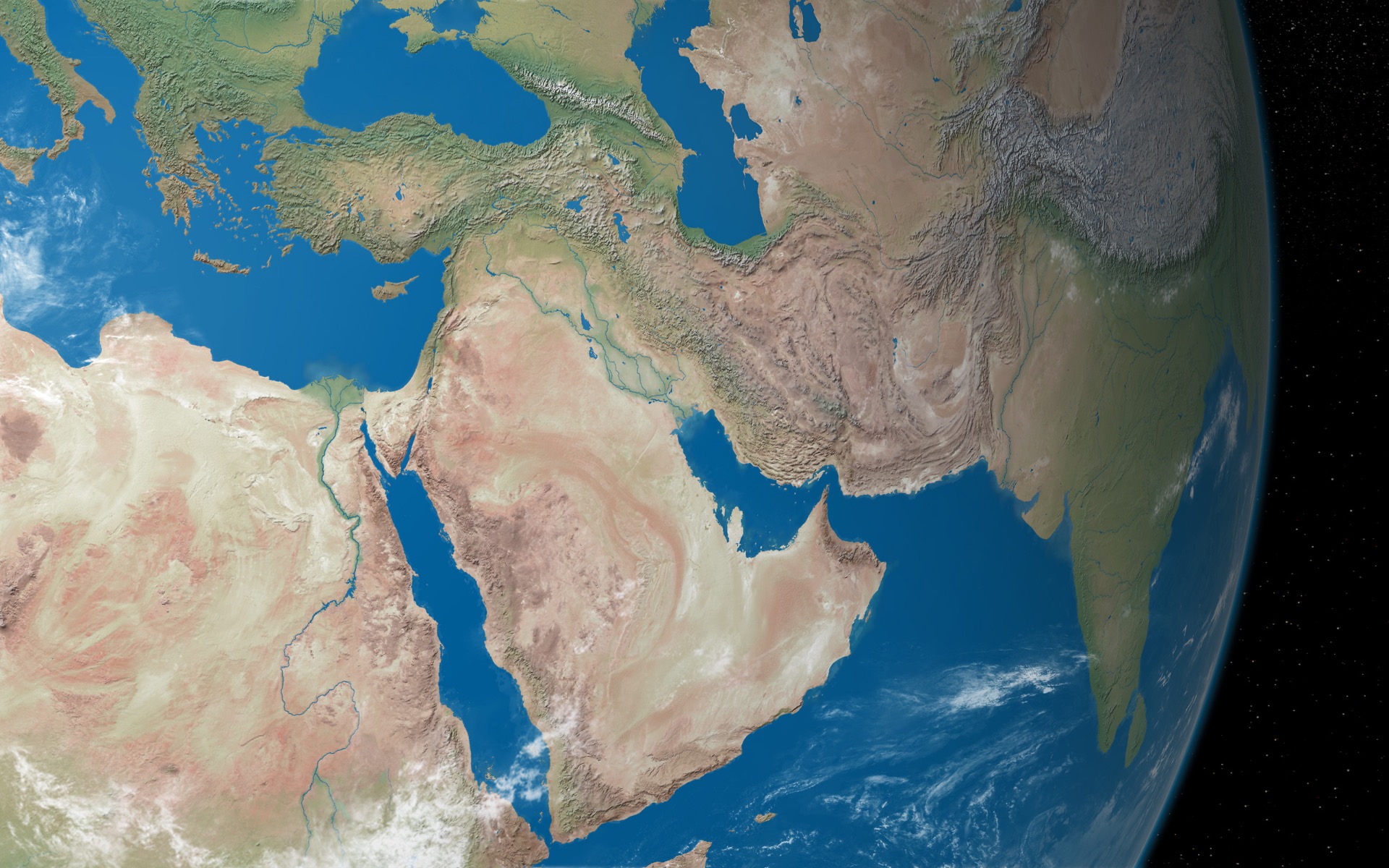Articles and analyses
By Maceo Ouitana*
On December 8, 2025, Syria commemorated the first anniversary of the fall of Bashar al-Assad, forced into exile after the lightning offensive launched from Idlib by forces united around Hayat Tahrir al-Sham. In Damascus, thousands of Syrians took to the streets, celebrating the end of more than half a century of dictatorship. But behind the scenes of jubilation, the country remains deeply fractured, caught in an uncertain transition where hope coexists with fear.
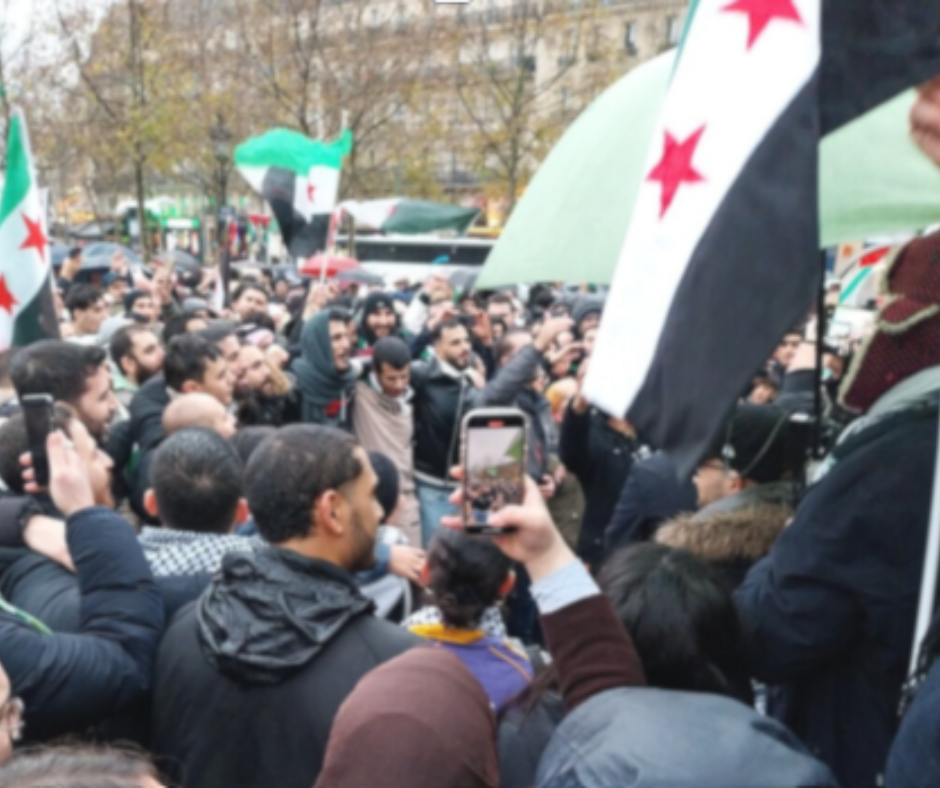
Meeting at the Luxembourg Palace with Struan Stevenson
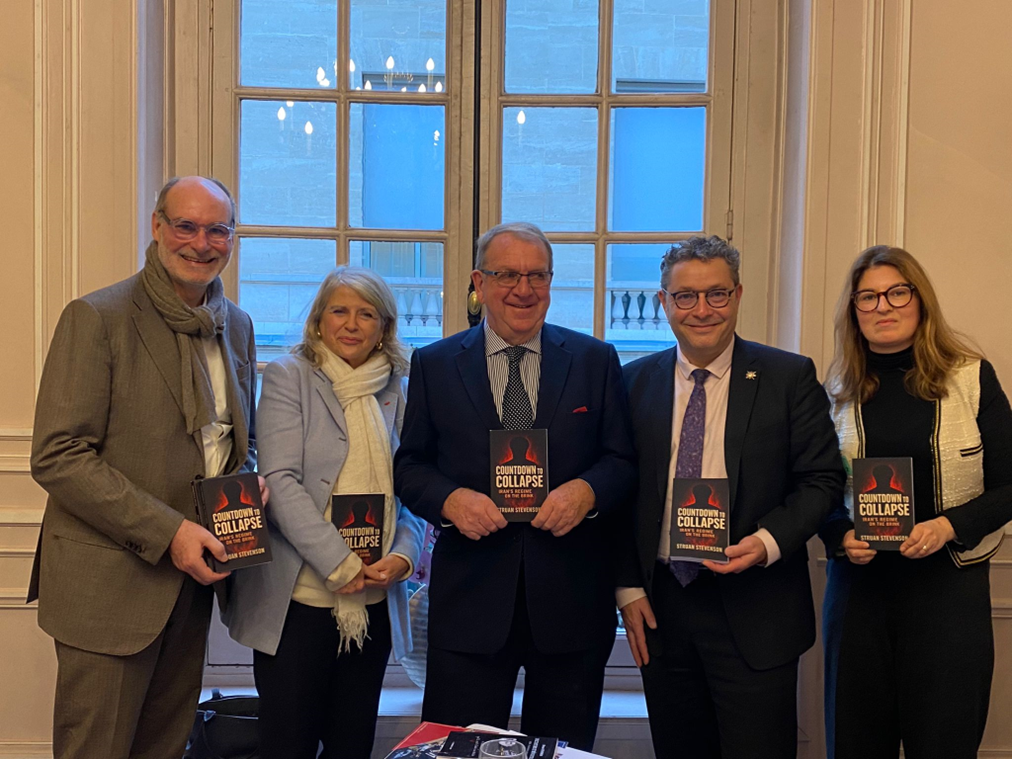
By the Editorial Staff
During a meeting held at the Luxembourg Palace on November 25, former Member of the European Parliament and Middle East expert Struan Stevenson met with senators to discuss the outlook for the Iranian situation. The Scottish figure, a senior official with the Committee for the Search for Justice (ISJ), coordinator of the Campaign for Change in Iran (CIC), former chair of the European Parliament's delegation for relations with Iraq (2009–2014) and of the intergroup "Friends of a Free Iran" (2004–2014), as well as author of several books on Iran and the Middle East, alerted elected officials to the fragility of the Iranian theocracy and the need to support the Iranian people in their aspiration for democracy and secularism.
The Iranian Regime, "Weaker Than Ever Since 1979"
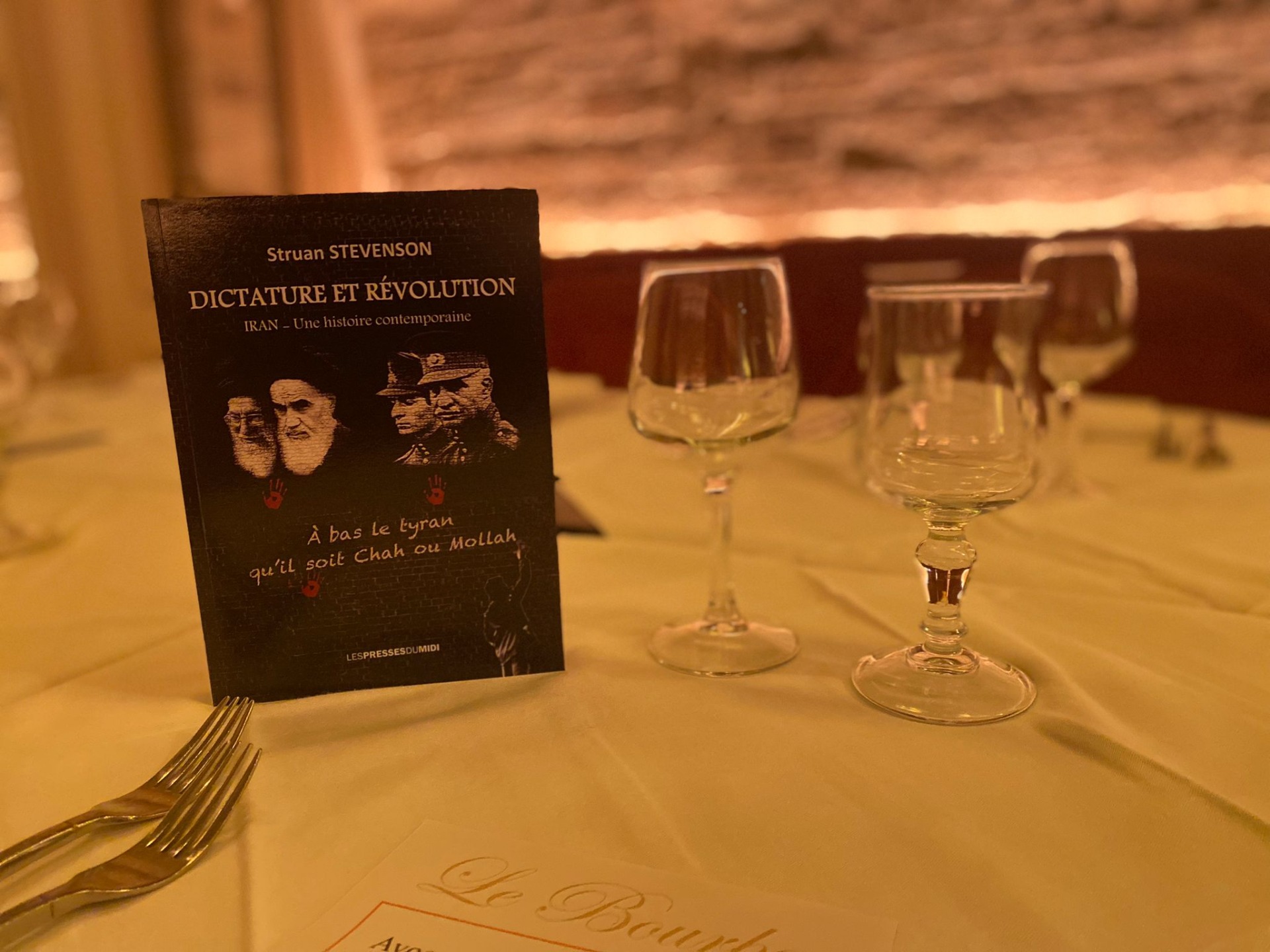
By the Editorial Staff
12/01/2025- Struan Stevenson, President of the Committee in Search of Justice (ISJ), was the guest of the FEMO in Paris on Tuesday, November 25, to meet with French parliamentarians and discuss future solutions for Iran. He then hosted a press luncheon, during which he delivered a stark assessment of the regime's situation.
Where Does Iran Stand? Five Months After the June 2025 War
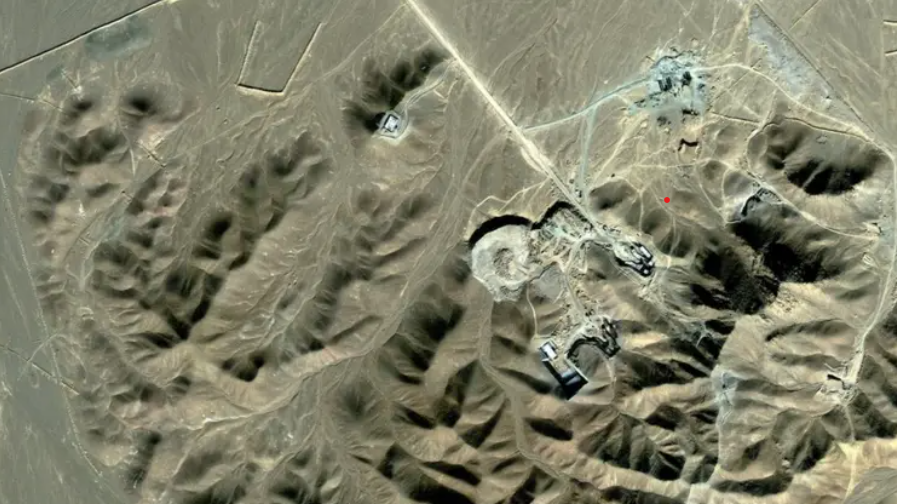
By Maceo Ouitana*
11/21/2025
In June 2025, Israel and the Iranian regime engaged in their most direct confrontation in decades. Twelve days of war of unprecedented intensity in the Middle East, marked by exchanges of missile strikes, drone attacks, and cyber offensives targeting the strategic infrastructure of both countries.
Iraqi Parliamentary Elections: A Decisive Vote for the Country's Political Future
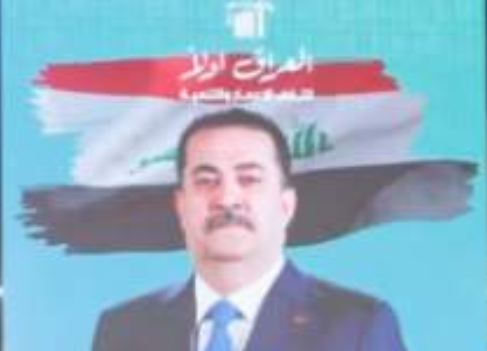
By the Editorial Staff - 11/19/2025
On November 11, 2025, Iraqis voted to renew the 329 seats in the House of Representatives. Despite a tense atmosphere (economic crisis, distrust of the political class, calls for a boycott launched by some citizen movements), voter turnout was surprisingly high. According to Le Monde, it was "strong," a sign that the population, despite its weariness, wanted to have a say in the country's institutional future.
Water Crisis in Iran
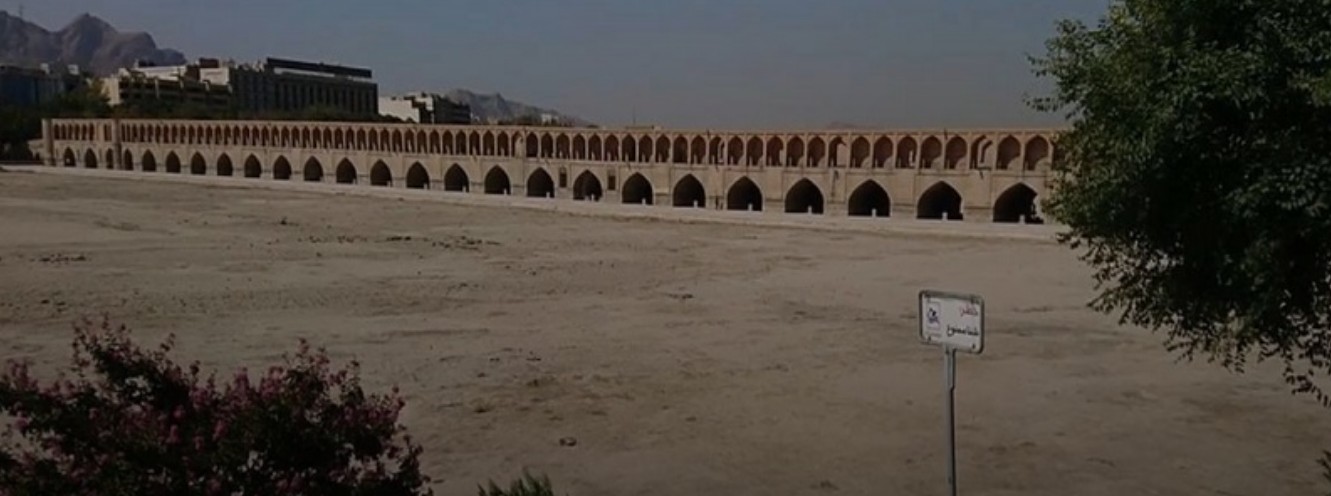
Khalil Khani *
Part One: Drought in Iran
Imagine standing beside a massive dam—not watching leisure boats gliding across the water, but instead seeing motorcyclists riding over its dry, cracked bed. This isn't a scene from a dystopian film or a figment of imagination; it is the grim reality of today's dams around Tehran.
The Fragmentation of Shiite Militias in Iraq: Between Loyalty to Tehran and the Assertion of Iraqi Sovereignty
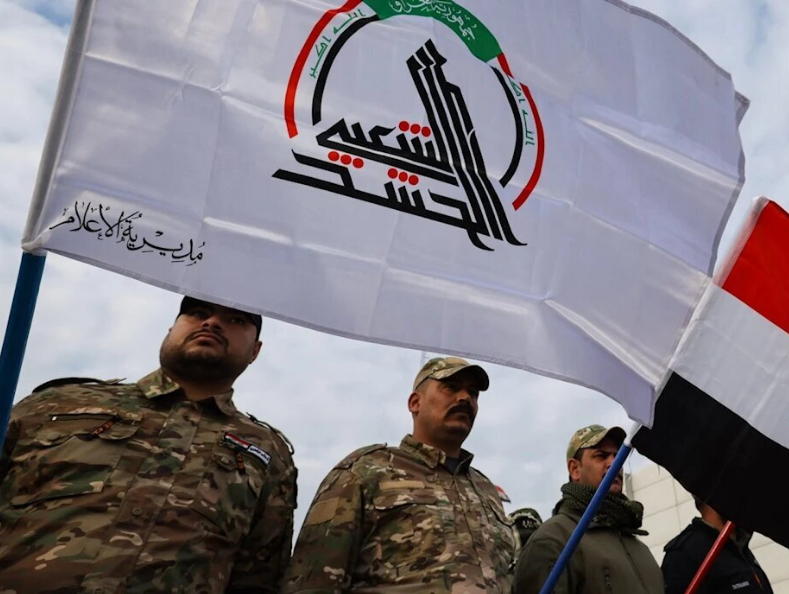
Since the 2003 US invasion and the fall of Saddam Hussein, Iraq has become a testing ground for the proliferation of Shiite militias. Born in the security vacuum left by the collapse of the national army, they initially presented themselves as forces protecting Shiite shrines and local communities.
Hezbollah: One year after the ceasefire with Israel – assessment, tensions and perspectives
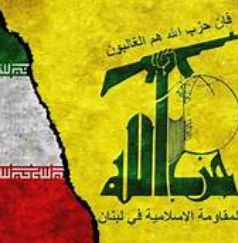
By Maceo Ouitana*
Hezbollah, a central military and political actor in Lebanon, has been at the heart of the regional dynamics shaping the Middle East for over forty years. Founded in 1982 with the direct support of Iran and in response to the Israeli occupation of southern Lebanon, it has evolved from a guerrilla militia into a political-military force integrated into Lebanese institutions, while maintaining complete military autonomy.
The Betrayal of Truth: GAMAAN Polling Under Dictatorship in Iran: Fondationfemo-com
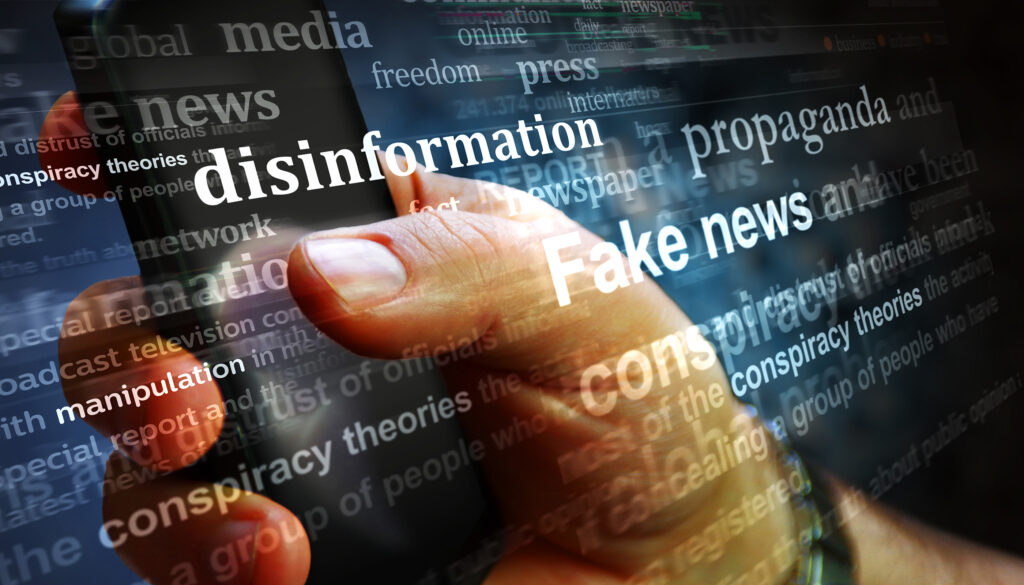
Professor Hossein Saiedian, The University of Kansas
Professor Kazem Kazerounian, The University of Connecticut
9/12/2025
Abstract. This article examines the use of political polling in authoritarian regimes, focusing on Iran and the recent surveys of the Group for Analyzing and Measuring Attitudes in Iran (GAMAAN). While GAMAAN presents its work as "scientific" and "representative," its online snowball sampling fails to meet the standards of statistical rigor or ethical neutrality. Under repression and surveillance, genuine political preferences cannot be measured. What emerges is not public opinion but the architecture of fear.
Yemen: A forgotten war, multiple conflicts – regional issues and prospects for peace
Jean-François Legaret – Nader Nouri - August 8, 2025
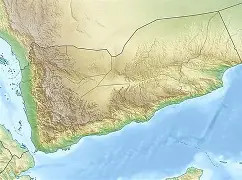
Reza Pahlavi: An Alternative or an Obstacle to Change

2 July , 2025
Dr. Khalil Khani, Professor Emeritus of Natural Resources, Tehran University
The situation in Iran is at a critical juncture. Popular discontent and resistance are on the rise. The regime is weaker than ever, facing an existential threat to its survival. Amid this turmoil, Reza Pahlavi, the son of the deposed Shah, presents himself as the self-proclaimed leader of the opposition. His father's 37-year rule was marked by an iron fist, rampant corruption, widespread torture, and executions.
Iran in Crisis: Assessing the Potential for Change and the Third Option, June 2025

Iran in Crisis: Assessing the Potential for Change and the Third Option, June 2025
The following analysis, published by the Free Iran Scholars Network (FSIN), a think tank of Iranian academics, examines the potential for change in Iran from the opposition.
Written by Dr. Ramesh Sepehrrad (author, researcher, and cybersecurity expert) and Dr. Kazem Kazerounian (professor and specialist in Iranian politics), this original and highly relevant analysis seemed to us to be of particular interest.
"Towards the end of the Iranian theocratic regime? A historic turning point in the Middle East."

By Ella Kelian
As the world's attention turns once again to Iran, a major shift appears to be looming in the Middle East region. Militarily weakened, diplomatically isolated, and challenged from within, the Iranian regime led by Supreme Leader Ali Khamenei appears more vulnerable than ever. Perhaps the time has come for the international community to shift its focus from external solutions to the Iranian people. Such a solution would involve concrete support for a democratic alternative to an increasingly contested power.
What is the link between the war in the Middle East and a collapse of the Iranian regime?

By Sara Nouri*
The weakening of Hezbollah, and by extension of the network of proxies of the Iranian regime in the Middle East region, fuels the most optimistic analyses about a possible imminent collapse of the Islamic Republic. A wind of hope is blowing, in fact, among analysts in favor of change, as the so-called "axis of resistance" camp sinks into despair. Is this optimism justified or is it just an illusion? After all, why would the collapse of a paramilitary organization in Lebanon, or the blows dealt to the Houthis in Yemen, or to Hamas in Gaza, lead to the fall of the powerful mentor in Tehran? To understand the reality of the situation, it is necessary to look at the historical nature of the power in place in Iran since 1979.
A tough diplomacy of convenience

The uprising which began on September 16 and spread throughout Iran for months, not only shook religious fascism but also aroused surprise and questions in the West: what replacement for Iranian theocracy; what direction will geopolitical developments take in the region? As the uprising progressed and the trend towards the overthrow of the regime strengthened - removing any illusion of reform, questions about the future of Iran arose with greater acuteness, notably the question of "the 'alternative ".
Iran is on fire, France must dialogue with the organized Iranian opposition

By : Jean-Francois Legaret
The insurrection in all the major cities and provinces of Iran has demonstrated that the Iranian people, bearers of a great civilization, its women, its young people, its rebels, no longer want to suffer arbitrary imprisonment, abuse, torture and capital executions.
However, in France, it is not easy to express solidarity with the Iranian resistance fighters who have been fighting for four decades for the establishment of a democratic and secular republic in their country.
"The Wagner group of Khamenei" in Iranian universities

By : Rasoul Asghari
As Iranian universities prepare to welcome the first wave of protests on the anniversary of last year's bloody uprising, regime officials announce the mass registration of Iraqi militia forces Hashd al- Chaabi as students at the University of Tehran.
The entry of these forces into the universities must be analyzed in a context where not only is Iranian society eagerly awaiting renewed protests, but the regime is also sinking into the nightmare of a much more intense future uprising.
Iran: the repression of women to stifle a society in turmoil

By Sara Nouri-Meshkati
Iranian state media has announced that mobile and foot patrols of the police will once again criss-cross the country to crack down on women who violate the dress code of the Islamist regime. According to the testimonies on the spot, and contrary to the past, these patrols and vehicles do not bear the insignia of the morality police, in order to surprise the women who do not respect the instructions of the authorities of the regime.
Iran: the illusion of a return to the monarchy

Do Reza Pahlavi and his supporters really believe that his status as the son of a deposed dictator gives him legitimacy?
By Nader Nouri
The regime of the mullahs in power in Iran for more than four decades is living a crucial moment in its harmful existence since an unprecedented great uprising has confronted it with the greatest challenge since its advent. The impasse is total in all areas, political, social and above all economic. Mired in many deep crises, the theocracy founded by Ayatollah Khomeini in 1979 is notably faced with an inextinguishable popular anger, to which it has no response except more repression, hangings, embastillation of opponents and activists of civil society, kidnappings, enforced disappearances, hostage-taking, etc.
The problem of the Iranian economy is structural since the arrival of religious power

Gérard Vespierre, is a geopolitical analyst, associate researcher at FEMO, Foundation for Middle East Studies, founder of the web media Le Monde Décrypté. He spoke on April 26 at a conference at the Brussels Press Club, on the initiative of the European Strategic Intelligence And Security Center (ESISC), on the Iranian situation after several months of one of the most serious crises that its regime has known. since its birth in 1979.
This explosion of Iranian society is not an overnight phenomenon

Behzad Naziri, a former journalist, he is a member of the Foreign Affairs Committee of the National Council of Resistance of Iran (NCRI). He spoke on April 26, 2023 during a conference at the initiative of the European Strategic Intelligence And Security Center (ESISC) at the Press Club of Brussels Europe. Through his personal experience, he describes the trajectory of a regime that is in danger in the face of a general protest led by an organized resistance. He also denounces the harmful effects of a pseudo-opposition. He answers the question of this colloquium: "After seven months of uprising, is the mullahs' regime threatened? »
Maintain political and diplomatic pressure on the heinous regime in Iran

Frédéric Encel, is professor of international relations and political science at the PSB Paris School of Business and lecturer at Sciences Po Paris. He spoke on April 26, 2023 at a conference at the initiative of European Strategic Intelligence And Security Center (ESISC) at the Brussels Europe Press Club on the situation of the Iranian regime, seven months after the uprising. Frédérice Encel took a look at the geopolitical dimension of the Iranian crisis. Here is a transcript of the gist of his speech.
Claude Moniquet: Let's try to be strong against an Iran which seems to be strong, but which in fact is very weak
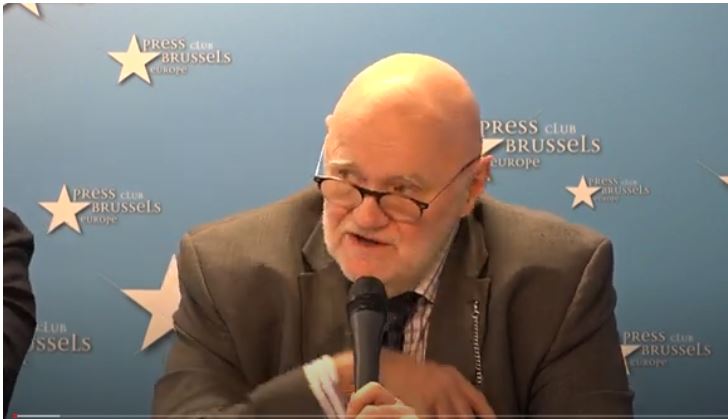
Claude Moniquet, former journalist, former field agent at the DGSE, worked on the Middle East and the Eastern Bloc and it is in these two capacities that he has been interested for 40 years on the situation in Iran and what is called the Shiite Arc: Iraq, Syria or Lebanon. He is the author of twenty books. He is co-director of the European Strategic Intelligence And Security Center (ESISC)
The big loser of the agreement between Iran and Saudi Arabia

By Nader Nouri
While this event is welcomed by many observers and countries in the region, some remain skeptical about the ability of the two countries to overcome their historic differences and work together to resolve regional conflicts.
Death of François Colcombet, President of the Foundation for Middle East Studies
François Colcombet, eminent magistrate and former deputy, died in Paris on April 3 at the age of 85. He had chaired the Foundation for Middle East Studies (FEMO) since 2017. FEMO paid tribute to his invaluable contribution and expressed its condolences to his relatives and friends for the loss of this great conscience of our times.
Iran: Furious, the regime takes revenge by attacking high school girls with poison gas

After 100 days of poison gas attacks on girls' schools in Iran resulting in the poisoning, intoxication and hospitalization of thousands of school and high school girls, Ali Khamenei, the Supreme Leader of the theocratic dictatorship, finally broke his silence to attribute these crimes to hands outside his regime. This is hardly surprising for connoisseurs of the all-out demagoguery mixed with the Goebbelsian propaganda that characterizes the old loner of Tehran.
Iranians reject a hypothetical monarchist alternative

Despite a fierce crackdown and several hangings, the protest movement for change is showing unexpected resilience in Iran. All the reasons for this protean revolt, which began in September, remain relevant. First, the thirst for freedom and then the urgency of emancipation from the yoke of a regime that impoverishes the population by squandering the country's wealth on systematic corruption and the military and nuclear ambitions of its Islamist leaders. The value of the Iranian currency is falling and inflation is reaching 60%. What is at stake in the current crisis for the regime is primarily a question of survival.
We need to support the Iranian people in their quest to change the regime

Remarks by Ambassador Adam Ereli, former spokesperson of the U.S. Department of State and Ambassador to Bahrain, in a panel on "Policy on Iran" in Paris, 29 June 2018, organized jointly by FEMO and APA.
"IRGC and the religious foundations are controlling most of Iran's economy"

Remarks by Paulo Casaca, Executive Director of the "South Asia Democratic Forum" based in Brussels and former member of European Parliament, in a panel on "Policy on Iran" in Paris, 29 June 2018, organized jointly by FEMO and APA.
The MEK has been the catalyst for democracy - Louis Freeh
Louis Freeh, former Director of the FBI, addressed a panel discussion on the subject of "Protests in Iran and the Role of the Opposition" in a Paris suburb on June 29, 2018. The event was jointly organized by FEMO and APA. His remarks follow:
The regime wasting Iranian people's wealth and exacerbating the deterioration of the infrastructure and humanitarian situation in Yemen

Remarks by Riad Yassin, Ambassador of Yemen in Paris, former Foreign Minister of Yemen, in a panel on the Iranian regime's "IRGC and Meddling in the Region" in Paris, 29 June 2018, organized jointly by FEMO and APA.
Change in Iran will come probably more from the exasperation of the Iranian people themselves - Bruno Tertrais

Bruno Tertrais, Deputy Director of the Foundation for Strategic Research (FRS).
Thank you, Lincoln. You asked provocative
questions, so I will try to give you provocative replies about the politics of
sanctions. Let me make three or four points about this.
Iran regime confess, MEK is behind uprising -Struan Stevenson
Struan Stevenson, coordinator for change in Iran, former Chairman of the European Parliament Delegation for relations with Iraq.
Thank you very much. The session this afternoon is to focus on the protests and the role of the opposition. I've been transfixed watching television over the last month about the volcano in Hawaii. Looking at the constant tremors, the earthquakes, the explosions.
We are indeed at a very hopeful time - Michael Mukasey
Michael Mukasey, former Attorney General of the United States, on a conference on Iran : "prospects for change" and "protests and the role of the opposition" said:
We are indeed at a very hopeful time. And I
think though there are dangers lurking if we're not careful. Even as to this
gathering, one report said that Speaker Gingrich and Mr. Giuliani were going to
be addressing a controversial group.
Iran has the potential to take its rightful place, as one of the leading nations of the world -John Baird

John Baird, ex foreign minister of Canada, was one of the speakers on June 29 conference. The conference was held under title: Iran: prospects for change. Here is the text of his speech:
Significant progress has been made by the democratic opposition to the regime in Tehran -Mitchell Reiss

Mitchell Reiss, Ambassador, Former Director of the US State Department for Policy Planning and Special Envoy for the Northern Ireland Peace Process, was a moderator on June 29, 2018 for a group discussion under title : protests and role of Iranian opposition.
Sanctioning the IRGC must be combined with support for opposition - Eduard Lintner
Eduard Lintner, former Deputy Minister of the Interior of Germany in a conference on June 29, 2018 on Iran: prospects for change said:
The protesters in Iran should have Western support - Michael Pregent

On Friday, June 29, 2018 a symposium held in Roissy-en-France organized by the Foundation for the Middle Eastern studies (FEMO) on the prospect for change in Iran. On this panel every one speaking on : Iranian revolutionary guard corps ( IRGC ) and the sanctions.
Here is text of speech of Michael Pregent, analyst in Middle East in Hudson institute :
Sanctions on Iran can work if they are part of a broader strategy - Robert Joseph

On Friday 29th of June, a conference was held in Roissy-en-france that was organized by Femo, under the title: Iran prospects for change.
Robert Joseph, Ambassador, U.S Special Envoy for nuclear non - proliferation and under-secretary of States for arms control and International security until 2007, was among the speakers speaking under the title "IRCG and the sanctions". The following is the text of his full speech:
Terrorism is in Iranian constitution - Mohammed al-Sulami
In his speech, Mohammed al-Sulami, President of the International Institute for Iranian Studies said:
White House says it is hard to find a conflict or a suffering people in the Middle East that the IRGC tentacles do not touch - General James Conway

On Friday, June 29, 2018 a symposium held in Roissy-en-France organized by the Foundation for the Middle Eastern studies (FEMO) on the prospect for change in Iran.
In his speech General Charles Wald, former Deputy Commander, United States European Command said:
The JCPOA was pretty much a failure - General Charles Wald

On Friday, June 29, 2018 a symposium held in Roissy-en-France organized by the Foundation for the Middle Eastern studies (FEMO) on the prospect for change in Iran.
In his speech General Charles Wald, former Deputy Commander, United States European Command said:
Just talked a little bit about many of these things you know, but just kind of putting it in context of what Iran has been doing in the region and the aggression they've shown over the last several years-decades actually.
Iranian regime had always the intention to expand - Walid Phares

Before we start the panel I'd like to say a
couple things about my little experience that's going to help me field the questions
or actually ask the panelists to address those issues. I am now in the United
States but I was born and raised in Beirut, Lebanon.
The Iranian regime has to go -Robert Torricelli

Robert Torricelli, Democratic member of the United States Senate from 1997 to 2003; and member of house of representative for 14 years in the United States, addressing a panel on "politics on Iran" in Paris, June 29, 2018.
We could take a very bold stand and recognize Madame Rajavi as the president of NCRI
Maria S. Ryan, president of Cottage Hospital of Woodsville in New Hamphire, addressing a panel on "politics on Iran" in Paris, June 29, 2018.
I am not a
politician. I look at it in simple
terms. You know, we wrong the country
historically so rich in culture, actually so progressive, and at one time
adored women and women held very powerful positions and then things changed.
I would hope that the U.S administration would be more active, in reaching out to the democratic resistance

Linda Chavez, Linda Chavez, former director of public relations at the White House addressing a panel on "politics on Iran" in Paris, June 29, 2018.
Well, I wish that there were more I could say about public opinion in the United States on Iran. Unfortunately, I think the American public is not as focused on this issue, as I would like to see them be.
Policy of appeasement is based on a false assumptions

Giulio Terzi, former Italian foreign minister and ambassador to the UN addressing a panel on "politics on Iran" in Paris, June 29, 2018. Moderator was Ambassador Bloomfield. Ambassador Lincoln Bloomfield (President Emeritus at the Stimson Center, former US Deputy Secretary of State for Military Affairs).
France must open eyes on the realities in Iran

By François Colcombet,
While United States and North Korea have committed themselves in a process of " denuclearization of the Korean peninsula », to be watched in the next stages, what's new about the process concerning the other "axis of evil » member, that is, Iran of ayatollahs?
Saudi Arabia - Iran : the big clash?
Gérard Vespierre, Conference at University « Paris Dauphine »
January 17th, 2018
« Khamanei, new Hitler of the Middle East... » recently stated Mohammed Ben Salman, the crown prince of Saudi Arabia. The relations between the two countries have never been so tense...
Since the Second World War, Saudi Arabia and Iran were in camps of the allies of the United States. Both of them jointly participated in the creation of the OPEC.
Europe and the Iranian threat:
Macron, Merkel and May should take action!

Jean-Sylvestre Montgrenier
For the French economic weekly "Challenges"
For the geopolitical scientist Jean Sylvestre Mongrenier, the Supreme Leader of the Revolution, the Iranian President and the Revolutionary Guards (Pasdaran) are still far from the honorary members of a small circle of reasonable people, committed to multilateralism, peaceful resolution of the conflicts and "dialogue" between civilizations.
Bolton's fiery style reduces risk of war and promotes the Iranian people's desire for change

BY IVAN SASCHA SHEEHAN, OPINION CONTRIBUTOR THE VIEWS EXPRESSED BY CONTRIBUTORS ARE THEIR OWN AND NOT THE VIEW OF THE HILL
President Trump's appointment of former
U.S. Ambassador to the United Nations John Bolton as his new national security
advisor faces resistance in some quarters. Many of those who oppose the
selection do so under the false assumption that Bolton will put the United
States on war footing with rogue states, most notably the Islamic Republic of
Iran.
France is taking a risky political and economic gamble in Iran

• by MOHAMMAD AMIN
However tempting trade with Iran might look, it also involves potentially damaging risks and obstacles
After lengthy negotiations, on 7 August Renault finalised an agreement to set up a joint venture with Iranian carmakers. Under the agreement, Renault will have 60% of the shares in the new company, with 20% being held by the Iranian state company IDRO (Industrial Development and Renovation Organization of Iran) and 20% by Parto Negin Naseh, an apparently private company. The stated aim is to ramp up production of various Renault models to 150,000 units per year.
IRAN : élection présidentielle en trompe l'œil

By Nader Nouri
France elected the president of its Republic democratically and by universal suffrage. A genuine head of state, the victor will, in his own words, "preside" over the country's destiny for five years with a head of government who will "govern". The defeated parties can hope to continue to democratically influence France's future by taking part in parliamentary elections. Things could hardly be clearer.
Iran's presidential election: what impact on the economy?

By Mohammad Amin*
Of
the six candidates (out of more than 1,600 hopefuls) selected to contest the
presidential election by the Council of Guardians on the orders of the
"Supreme Guide", the main rivalry was between the two favourites:
white-turbaned Hassan Rohani, the outgoing president who has occupied the
highest security functions for more than quarter of a century, and
black-turbaned Ebrahim Raissi, the judge who ordered the massacre of thousands
of political prisoners, a key figure in the judicial apparatus since 1980 and
the head of one of the world's largest financial and religious foundations,
Astan-e Qods Razavi.
L'emprise des gardiens de la révolution sur l'économie iranienne paralyse ce pays*

Par Nader Nouri
Un peu plus d'un an après la levée des sanctions économiques internationales liées au programme nucléaire militaire du régime iranien, de nombreuses entreprises occidentales, notamment européennes, attirées par le potentiel d' « un marché de 80 millions d'habitants », se sont ruées vers le soi-disant « eldorado » iranien. Mais faire des affaires et surtout investir dans ce pays, s'est avéré plus compliqué que ce que l'on imaginait au départ.
Le budget militaire iranien a augmenté de 70% sous la présidence de Rohani

Hassan Rohani, le président de la république des mollahs, a présenté, en décembre, le projet de loi des finances pour l'année persane prochaine (mars 2017-mars 2018) au Majlis [le parlement iranien]. On constate une augmentation du budget militaire iranienne. Les explications avec Mohammad Amin chercheur associé à la FEMO.
Tribunes de Sylvestre Mongrenier: La chute d'Alep-Est et la montée en puissance du panchiisme

Quelques jours après la chute d'Alep-Est, le conseil de sécurité a adopté un nouveau projet de résolution. Mais sa composition fait oublier le rôle de l'Iran et des milices chiites, selon Jean-Sylvestre Mongrenier, chercheur à l'Institut Français de Géopolitique (Paris-VIII) qui a publié cette tribune sur Challenges.fr.
Crises au Moyen-Orient - Perspectives et solutions: intervention de Jean-Sylvestre Mongrenier

FEMO
Jean-Sylvestre Mongrenier, le 8 juillet 2016
Le régime iranien, « grand perturbateur » régional
De prime abord, le thème de cette table-ronde pose la question de savoir s'il faut parler de crises au Moyen-Orient. Le terme est très en deçà de la réalité. La région est sous la menace d'une déflagration générale, une guerre de tous contre tous, centrée sur le théâtre syro-irakien, avec des répercussions géopolitiques jusqu'en Europe. Plusieurs guerres se superposent sur ce théâtre, certes, mais la complexité des événements ne doit pas occulter un facteur central : le rôle central du régime chiite-islamique, « grand perturbateur » régional.
Bahreïn : 35 ans de relations tumultueuses avec l'Iran des mollahs (Première partie)

Par Nader Nouri
Le 4 janvier, le Royaume de Bahreïn rompait ses relations diplomatiques avec Téhéran, quelques jours seulement après la rupture des relations entre ce-dernier et l'Arabie saoudite. De nombreux commentateurs ont qualifié cette décision du gouvernement bahreïni comme simple acte de solidarité avec Riyad qui avait vu son ambassade à Téhéran et son consulat à Meched mis à sac et incendiés par des éléments liés au régime iranien, suite à l'exécution d'un membre du clergé chiite saoudien accusé d'avoir « fomenté un complot contre le Royaume ». Or, les raisons profondes de cette rupture entre Manama et Téhéran remontent bien aux premières années de la prise du pouvoir par Khomeiny et ses mollahs en Iran, après la révolte antimonarchique des années 1978-1979.
Sénat : Table ronde avec la Presse
Peut-on concilier économie et droits de l'Homme en Iran ?
Le 21 juin 2016, la FEMO parrainait une table ronde organisée par le Comité de Soutien aux Droits de l'Homme en Iran (CSDHI) au Sénat français autour du thème suivant : « Bilan des droits de l'Homme en Iran et de la crise en Syrie ». D'éminents opposants et journalistes syriens et iraniens en exil furent invités à discuter de la situation des droits humains (après l'accord nucléaire) - en particulier de la liberté d'expression - et du rôle du régime iranien dans le conflit syrien. C'est à cette occasion que M. Ahmad Kamel, conseiller de presse de la délégation syrienne de l'opposition dans les négociations sur la Syrie, M. Rasoul Asghari, journaliste iranien en exil et ancien Rédacteur en chef des nouvelles politiques du Journal iranien Sarmayeh (le Capital), et M. Behzad Naziri, ancien journaliste iranien et membre de la commission des affaires étrangères du CNRI, sont venus rappeler certains aspects de la réalité iranienne, trop souvent occultés par l'ouverture économique promue par le régime des mollahs depuis près d'un an. Lors de cette rencontre, modérée par Mme Simin Nouri (du CSDHI), tous ont en effet appelé à une plus grande sensibilisation de l'opinion publique, qui ne devrait pas oublier le caractère dictatorial du régime de la République islamique.
Table ronde au Sénat français sur la situation en Iran

À l'initiative de la FEMO fut organisée une table ronde au Sénat français, le mercredi 18 mai 2016, sur le thème « Iran : les obstacles structurels et financiers un an après l'accord sur le nucléaire ». Au cours de cette table ronde - à laquelle des journalistes ont également participé - , des représentants des entreprises et des ambassades étrangères à Paris, MM. Alejo Vidal-Quadras, l'ancien vice-président du Parlement Européen et fondateur du Comité international pour la recherche de la justice (International Committee In Search of Justice/ISJ) ainsi que Mohammad Amin, analyste et chercheur-associé à la FEMO, ont présenté leurs analyses de la situation interne en Iran près d'un an après la signature de l'accord sur le programme nucléaire de Téhéran et cinq mois après la levée des sanctions internationales.
M. Alain Neri, sénateur du Puy-de-Dôme (Auvergne-Rhône-Alpes) et secrétaire de la Commission des affaires étrangères, de la défense et des forces armées du Sénat, a inauguré cette table ronde en souhaitant la bienvenue aux participants et en soulignant l'importance d'une conférence comme celle-ci et de l'échange de points de vue sur la situation au Moyen-Orient en général, et sur l'Iran en particulier.
Ce que Washington ne comprend pas au sujet de l'Iran
Par Lincoln P. Bloomfield et Jr. Ramesh Sepehrrad*

Occultée par une campagne présidentielle américaine tumultueuse, l'une des préoccupations majeures en politique étrangère - la future attitude des Etats-Unis envers l'Iran - se trouve à un tournant. Dans un discours prononcé en septembre 2013, à la tribune de l'Assemblée générale des Nations Unies, le Président Obama déclarait : « si nous pouvons régler la question du programme nucléaire iranien, cela sera une étape majeure dans la longue voie vers de nouvelles relations, des relations fondées sur les intérêts et le respect mutuels. » Toutefois, les déclarations du Guide Suprême Ali Khamenei et les mesures prises par les autorités iraniennes, qui font suite à l'accord signé en Juillet 2015, ne montrent que peu de signes d'une plus grande reconnaissance des intérêts américains.
Iran, élections aux enjeux cruciaux pour le pouvoir

Par Nader Nouri*
Le 26 Février, deux «élections» auront lieu en Iran simultanément: les élections législatives pour choisir les futurs occupants de 290 sièges que compte l'Assemblée consultative islamique (le Majlis) et celles de l'Assemblée des experts composée de 88mollahs de haut rang, l'institution chargée de la désignation du guide suprême et, en théorie, superviser sa conduite et son action.
Une entreprise de désinformation à propos de l'Iran de Rohani
Par Jean-Sylvestre Montgrenier*
Je pense que ce type d'activité est indispensable puisque nous assistons à une entreprise de désinformation à propos de l'Iran de Rohani. Je me suis donc proposé de parler de ce ballet diplomatique de Vienne à Genève, une sorte de jeu de dupes.
Est-ce un eldorado l'Iran?
Par Gérard Vespierre*
Effectivement le président Rohani est venu, nous avons signé des contrats donc nous sommes dans un environnement économique. Est-ce un eldorado l'Iran? Est-ce un eldorado pour les iraniens? Est-ce que c'est un grand pays qui va se développer rapidement ou est-ce que c'est un eldorado pour les fournisseurs de l'Iran ?
L'Iran joue une politique expansionniste
Par Frédéric Encel*
Certains d'entre vous ont déjà assisté à une table ronde il y a plusieurs semaines avant la venue à Paris du président iranien, et nous avions déjà travaillé sur des thématiques de fond liées à la République Islamique d'Iran et aux caractéristiques à la fois ultra autoritaires de cet état et aux mensonges de ses dirigeants ou aux dissimulations du président de cette République Islamique, à savoir Monsieur Hassan Rohani.
Iran : nouvel Eldorado, ou possible mirage... ?

La levée des sanctions contre le régime de Téhéran après l'accord international sur le programme nucléaire iranien offre de réelles opportunités de commerce international avec ce pays. Toutefois le paysage n'est pas sans nuage, ou potentielles illusions.
Le Commerce et les relations internationales peuvent-ils se limiter à des déclarations incantatoires : il faut aller en Iran... ?
Levée des sanctions économiques sur l'Iran : la grande désillusion

par Mohamad Amine, Chercheur associé à la FEMO (Fondation d'Etudes pour le Moyen-Orient)
Six mois après sa conclusion de l'accord nucléaire de Vienne entre l'Iran et les grandes puissances entre en vigueur, samedi, entraînant une levée des sanctions économiques qui frappaient depuis des années ce pays aux riches ressources pétrolières et gazières. Cela suscite pourtant de nombreuses interrogations sur l'avenir.
L'Iran, une société étouffée qui peut exploser à tout moment.

Le président de la Fondation d'Etudes pour le Moyen-Orient, François Colcombet, participait le 10 décembre dernier à un colloque organisé au Paris School of business, sur le thème « Iran : guerre ou paix ? ». Voici un extrait de cette intervention de l'ancien magistrat et spécialiste de la constitution iranienne :
Frédéric Encel : Avec l'Iran nous n'avons pas les mêmes objectifs.

Frédéric Encel participait le 10 décembre 2015 à un colloque organisé par la FEMO au Paris School of business, sur le thème « Iran : guerre ou paix ? ». Dans son intervention, le géopolitologue et maître de conférences à Sciences-Po, a abordé la politique de la France à l'égard de l'Iran et l'impossibilité d'alliance avec l'Iran contre Daech voici une transcription de son intervention.
Bruno Tertrais : l'Iran c'est le pompier pyromane, l'illusion d'un partenariat.

Bruno Tertrais, maître de recherche à la Fondation pour la recherche stratégique, participait le 10 décembre 2015 à un colloque organisé par la FEMO au Paris School of business, sur le thème « Iran : guerre ou paix ? ». Dans son intervention, le politologue spécialiste des questions internationales a déclaré :
La « terreur noire » et sa racine historique en Iran

par François Colombet, président de la Fondation d'Etudes pour le Moyen-Orient
Paris n'en est pas à sa première expérience du terrorisme inspiré par la religion. Cette douloureuse épreuve nous l'avons traversée pour la première fois au milieu des années 1980 quand est apparue ce qui était à l'époque une forme nouvelle de terrorisme. Paris a été ensanglanté par une vague d'attentats que les enquêteurs attribueront à un réseau islamiste dont les agents opérationnels étaient fournis par le Hezbollah libanais et dont les ficelles étaient tirées par l'Iran. Un groupe local de fanatiques soudé par une croyance dans "la vertu de la Révolution islamique" participa également à la furie meurtrière qui verra Paris, entre décembre 1985 et septembre 1986, frappé de quelques 13 attentats avec, à chaque fois, des morts et des dizaines de blessés. Le plus meurtrier de ces attentats sera celui de la rue de Rennes où une voiture piégée a explosé près du magasin Tati provoquant un carnage jusque-là inconnu des Parisiens.
Clarifications nécessaires sur le conflit syrien
Par Nader Nouri, ancien diplomate, analyste et secrétaire général de la FEMO
La 70ème session de l'Assemblée générale de l'ONU dominée par les débats sur la situation aggravante de la guerre en Syrie, a été lundi 28 septembre l'occasion pour des clarifications importantes de la part des présidents français et américain à ce sujet. Dans son discours devant les chefs d'Etats et de gouvernements du monde entier, le Président Hollande a notamment affirmé son désir de voir s'installer un nouveau régime en Syrie en affirmant, entre autres, que « Bachar Al-Assad est une partie du problème, il ne peut donc pas faire partie de la solution ».
Pourquoi l'Iran a été en fait affaibli par l'accord de Vienne?

Par Gérard Vespierre, Associé-fondateur de « Strategic Conseils», chercheur associé à la Fondation d'Etude pour le Moyen-Orient (FEMO)
Depuis la signature le 14 juillet de l'accord « historique » de Vienne entre l'Iran et les puissances internationales du groupe dit des « 5+1 », beaucoup d'idées ont été émises tant pour souligner le succès et le bien-fondé de cet accord par la représentation internationale, que pour à l'opposé, souligner une forte hostilité, de la part d'Israël ou du parti Républicain à Washington.
Iran/économie : gare au mirage du rebond

Par Mohamad Amine, Chercheur associé à Fondation d'Etudes pour le Moyen-Orient (FEMO)
Dans la semaine qui a suivi l'accord sur le programme nucléaire iranien, une importante délégation allemande s'est rendue à Téhéran pour évaluer l'état de l'économie iranienne en prévision d'une augmentation des exportations vers ce pays. Rapportant ce déplacement, l'AFP note dans une dépêche que les sociétés allemandes ont les yeux rivés sur le marché iranien dans les domaines pharmaceutique, chimique, de l'ingénierie et des pièces de rechange automobiles.
L'Iran reste un régime foncièrement néfaste et destructeur - Yves Thréard
Yves Thréard, éditorialiste et chroniqueur au Figaro, participait le 12 juin à un colloque organisé par la Fondation d'Études sur le Moyen-Orient autour de la problématique du programme nucléaire iranien et la lutte contre l'extrémisme islamiste.
L'Iran joue la politique du pire sur l'ensemble de la région - Frédéric Encel
Frédéric Encel, directeur de séminaire à l'Institut Français de Géopolitique, participait le 12 juin à un colloque organisé par la Fondation d'Études sur le Moyen-Orient sur le programme nucléaire iranien et la lutte contre l'extrémisme islamiste.
Good deal would require no enrichment capability for Tehran, full access to all sites - Alireza Jafarzadeh
Alireza Jafarzadeh, Deputy Director of NCRI US Representative Office, author of the book, The Iran Threat: President Ahmadinejad and the Coming Nuclear Crisis, was among experts addressing a panel session in Paris on June 12 on nuclear deal with the Iranian regime. He reiterated that a good deal was already out of the picture because a good deal would require no enrichment capability for Tehran and full access to all sites.
The world is going to be a much more dangerous place - Linda Chavez
Linda Chavez, former Assistant to the U.S. President for Public Liaison, took part on June 12th in a Policy Forum organized by "Foundation for Middle Eastern Studies" (FEMO) on "Policy on Iran and Countering Islamic Extremism". (Video)
Iran will go towards even more radicalization - Bruno Tertrais
Bruno Tertrais, senior fellow at the French Foundation for Strategic Research (FRS), took part on June 12th in a Policy Forum organized by "Foundation for Middle Eastern Studies" (FEMO) on " Nuclear Negotiation with Iran, Policy on Iran and Countering Islamic Extremism".
The ideal solution is for a democratization of Iran - James Woolsey

James Woolsey, former Director of the Central Intelligence Agency under President Clinton, took part on June 12th in a Policy Forum organized by "Foundation for Middle Eastern Studies" (FEMO) on "Policy on Iran and Countering Islamic Extremism". (video)
United States, and Europe must stand up for human rights - Governor Howard Dean
Howard Dean, former Governor of Vermont and Chair of the US Democratic Party, attended a panel discussion in Paris on June 12 on "Policy on Iran and Countering Islamic Extremism" organized by the French "Foundation for Middle Eastern Studies" (FEMO) and chaired by Ambassador Lincoln Bloomfield Jr., former US Special Envoy and Assistant Secretary of State for Political Military Affairs. In his remarks while addressing the nuclear issue he emphasized that it was time for the United States and Europe stop looking for the peaceful way out at any price and begin to stand up for human rights.
Les conditions de l'émergence de l'extrémisme sous forme de Daech - Par Myriam Benraad

Myriam Benraad, chercheuse associée au centre d'études et de recherches internationales (CERI-Sciences Po) et à l'institut de recherches et d'Etudes sur le monde arabe et musulman, intervenait le 5 février 2015 à un colloque organisé par la FEMO sur le thème : Où va le Moyen-Orient ? Le chaos actuel en Irak et en Syrie a-t-il une solution ? Dans son intervention à la Sorbone, l'auteur de « L'Irak, la revanche de l'Histoire », a développé sa réflexion sur « Les conditions de l'émergence de l'extrémisme sous forme de Daech en Irak et en Syrie ». (Vidéo)
Les Changements d'alliances et tentation d'un nouvel ordre au Moyen-Orient - Par Pierre Vermeren

Le 5 février 2015 s'est tenu à la Sorbonne un colloque organisé par la FEMO en collaboration avec l'IMAF et le Master Afrique de l'Université de Paris 1 sur le thème "Où va le Moyen-Orient ? Le chaos actuel en Irak et en Syrie a-t-il une solution ? Faut-il associer l'Iran à une solution ? " Pierre Vermeren, historien, Professeur à Paris 1 en histoire du monde arabe contemporain a abordé « les Changements d'alliances et tentation d'un nouvel ordre au Moyen Orient : quelques perspectives pour l'après-guerre... » (VIDEO)
Wrong policy in Iraq and Iran benefitted mullahs - Struan Stevenson
Addressing a panel session in Paris on June 12, Struan Stevenson, former president of the European Parliament Delegation for Relations with Iraq, said that the US and Europe had pursued the wrong policy in Iraq and Iran for the last decade and it is still continued. He stressed, "Unless we get this right and rearm and retrain the Sunnis, reawaken the Sunnis to drive ISIS out of Iraq, then Iraq will become a total basket case and a failed state. And who will be the benefactors from that? Iran."
L'accord des P5+1 va maintenir l'Iran au seuil de l'arme nucléaire - Olli Heinonen

Les termes de l'accord en cours de négociation entre les grandes puissances mondiales et le régime iranien lui permettront de rester comme étant un état au seuil de l'armement nucléaire, a mis en garde Olli Heinonen, ancien Directeur général adjoint de l'Agence Internationale de l'Energie Atomique (AIEA). Il a fait ces remarques au sein d'un groupe d'experts lors d'une réunion de la Fondation d'Etudes pour le Moyen-Orient (FEMO) tenue à Paris le 12 juin.
Regime change is what is needed - Ambassador Ken Blackwell
Former U.S. ambassador to the UN Human Rights Commission Ken Blackwell told a panel session in Paris on June 12 that regime change was needed, and we must get there by any means necessary. "That's the only way that you're going to bring stability back to the neighborhood of the Middle East", he said.
Les racines du fondamentalisme islamiste - par Jalal Ganjei
Le 5 février 2015 s'est tenu à la Sorbonne un colloque organisé par la FEMO en collaboration avec l'IMAF et le Master Afrique de l'Université de Paris 1 sur les questions d'actualité qui touchent le monde arabo-musulman. Djalal Ganjei*, dignitaire musulman chiite, président de la commission des libertés de cultes du Conseil national de la Résistance iranienne a évoqué « Les racines de ce fondamentalisme islamiste, y a-t-il une distinction à faire entre l'extrémisme chiite et sunnite ? »
Le nucléaire iranien : vers un compromis illusoire? Par Nader Nouri
Le samedi 13 juin, des dizaines de milliers d'exilés iraniens se sont rassemblé à Villepinte pour leur meeting annuel marquant l'anniversaire du raid lancé en juin 2003 par les forces de sécurité françaises contre le siège, en banlieue parisienne, du Conseil national de la Résistance iranienne (le CNRI). Lors de cette opération qualifiée d' « anti-terroriste », les domiciles des dizaines de réfugiés politiques iraniens avaient également été pris d'assaut, et plus de 170 personnes avaient été interpellées avant d'être, pour certains d'entre elles, notamment Maryam Radjavi, présidente du CNRI, incarcérées.
François Colcombet : Où va le Moyen-Orient ?
François Colcombet, président de la Fondation d'Etudes pour le Moyen Orient (FEMO), intervenait le 5 février 2015 à un colloque organisé par la FEMO sur le thème : Où va le Moyen-Orient ? Le chaos actuel en Irak et en Syrie a-t-il une solution ?
Baisse du pétrole : Axe américano-saoudien ?

Par Gérard VESPIERRE, associé fondateur de Strategic Conseils, Chercheur associé à la Fondation pour l'Etude du Moyen-Orient (FEMO)
Ce mouvement baissier relève-t-il uniquement des lois du marché ou repose-t-il également sur des données géostratégiques? Cette interrogation nous conduit à poser plusieurs questions : Quelles sont les éléments politiques qui auraient accompagné le marché à la baisse ? Comment ce processus de baisse a-t-il été engagé ? Pourquoi maintenant... ?
Iran-économie: les Pasdaran continuent leur offensive sous Rohani

Par MOHAMAD AMIN / ANALYSTE
Le mois dernier, les médias iraniens ont rapporté que le gouvernement Rohani a confié aux Gardiens de la révolution (Pasdaran) le grand projet de développement de la zone franche de l'Ile de Kish, dans le golfe persique. Akbar Torkan, Secrétaire du Conseil des zones franches iraniennes, a précisé que le projet comporte la construction sur l'île, d'un aéroport, d'un port franc et d'autres infrastructures, en vue de promouvoir l'économie du pays.
L'État islamique ou « l'Orient très, très compliqué »...

Par Gérard Vespière, président de Stratégic Conseils
Ce titre fait évidemment référence à la célèbre expression de « l'Orient compliqué » du Général de Gaulle, qui dans son art de la pertinence, et de la brièveté, était inimitable. Cette expression est toujours apparue comme éminemment juste, mais les années passant, et les évènements s'accumulant et se complexifiant, ne faudrait-il pas la considérer non plus comme une expression superbe de concision, mais plutôt comme un euphémisme, c'est-à-dire exprimant une pensée finalement très en-deçà de la réalité!
Iran : partenaire dans la solution ou source d'instabilité ?

Par Nader Nouri
Il existe un consensus sur l'origine de la crise actuelle en Irak. Le ministre des Affaires étrangères l'a reconnu la semaine dernière lors de son audition à l'Assemblée, il s'agit de la politique autoritaire et sectaire de l'ancien Premier ministre Al-Maliki qui a marginalisé les sunnites et les Kurdes et tout en monopolisant le pouvoir dans les mains d'une fraction chiite.
Irak : évaluation de la menace
Par Wesley Martin, Colonel (à la retraite) Ancien officier supérieur de la protection antiterroriste pour toutes les forces de la coalition en Irak
Au cours de mon mandat en tant qu'officier supérieur du contre-terroriste et de la force de protection de toutes les forces de Coalition en Irak, j'avais identifié six groupes de menace de base contre nous : les terroristes nationaux, les terroristes internationaux (Al-Qaïda et autres), des éléments de l'ancien régime (Saddamistes), les extrémistes religieux, les criminels et les tribus.
Intervention d'Antoine Basbous au colloque de la FEMO
Intervention d'Antoine Basbous au colloque de la FEMO: "Je vais commencer par m'interroger sur la genèse, sur le mystère d'une alliance entre un régime soit disant laïque, le Baas en Syrie, et une République islamique qui veut exporter sa révolution partout et à travers les communautés chiites. A vrai dire, c'est une grande duperie, l'alliance est bien réelle, elle est fondée sur la dissimulation, ça veut dire qu'on met en vitrine quelque chose pour appâter.
L'ACCORD DE GENEVE, PREMIERE ETAPE VERS LA CHUTE DU REGIME DES MOLLAHS

Par Gérard Vespière, président de Stratégic Conseils
La signature de l'accord de Genève du 24 Novembre entre l'Iran et « le groupe des 5+1 » est une étape importante de la situation iranienne vis-à-vis du reste du monde, c'est-à-dire sa situation extérieure, mais également par rapport à sa propre situation intérieure.
Interview avec Nader Nouri, Secrétaire général de la FEMO
Les droits de l'homme un facteur non négligeable
Dans les chancelleries, autant que chez les défenseurs des droits de l'homme et les amis de la liberté, l'élection d'Hassan Rohani avait fait naitre de nouvelles attentes quand à un minimum d'adéquation entre les actes et paroles de celui qu'on avait cru "modéré". Les grands espoirs sont partis progressivement en lambeaux, comme autant d'illusions naïves et dérisoires. Interview avec Nader Nouri, Secrétaire général de la FEMO:
Les dix fardeaux de l'économie iranienne

Par Mohammad Amin,
Chercheur associé à Fondation d'Etudes pour le Moyen-Orient (FEMO)
Plus de 10 mois après l'entrée en fonction de Rohani, l'espoir des Iraniens ordinaires pour une reprise économique s'estompent. Dans son dernier rapport, le 5 avril, sur l'état de l'économie du pays, le Fonds monétaire international (FMI) envisage une perspective de stagnation économique, une croissance négative et de fortes incertitudes d'une reprise à court terme.
François Colcombet : Dépasser l'approche superficielle de la réalité des tensions au Moyen-Orient
Le premier d'un cycle de conférences dans le but d'apporter un éclairage sur les problèmes actuels au Moyen-Orient a été inauguré par une introduction de François Colcombet, président du FEMO à un colloque à la Maison de la Chimie::
Iran : une situation économique et sociale explosive
Bertrand Delais, documentariste et journaliste
Transcription de l'intervention de Bertrand Delais au colloque de la FEMO, à la Maison de la Chimie: "Dans le premier mandat du président Rohani, il y a la question du dossier du nucléaire et l'embargo, pourquoi? Parce qu'il y a un grand péril à intérieur. Principalement pour des raisons économiques. Mais au fond, quand on creuse un peu la société iranienne d'aujourd'hui, son état de délabrement, on est saisi de vertige.
Pierre Rousselin : Le mandat de Rohani, desserrer l'étau des sanctions
Pierre Rousselin, Chroniqueur de politique étrangère au Figaro
Transcription de l'intervention de Pierre Rousselin au colloque de la FEMO à la Maison de la Chimie, le 11 février 2014:
J'étais en Iran en 1980, peu après la révolution, pour l'Agence France-Presse. Je vais surtout m'attacher à essayer de comprendre l'actualité. Comment on est arrivé où on en est, et où l'on va. Ce qui me paraît personnellement assez inquiétant, contrairement à l'impression générale très positive que l'on a tendance à entendre sur le dossier iranien. Je partirai des sanctions, puisque c'était le dernier sujet d'intervention.
Yves Thréard: L'influence du régime iranien sur la propagation de l'Islamisme
Yves Thréard, Chroniqueur au Figaro
Transcription de l'intervention d'Yves Thréard, au colloque de la FEMO à la Maison de la chimie:
"L'Iran est un pays que j'aime bien. Quand la révolution a éclaté en 1979, je revenais de ce pays. On m'a demandé pour ce soir de répondre à une vaste question, si tant est qu'on puisse y répondre : quelle est l'influence de la révolution iranienne, de ce régime iranien sur la diffusion de l'islamisme dans le monde.
Frédéric Encel : Éviter la confusion entre le peuple iranien et le régime
Frédéric Encel, Professeur à l'ESG Management School et maître de conférences à Sciences-Po
Transcription de l'intervention de Frédéric Encel, au colloque de la FEMO à la Maison de la chimie :"Le peuple iranien n'est pas le régime iranien. Je suis stupéfait jour après jour, notamment dans les milieux universitaires que je fréquente assez assidûment, de constater à quel point il y a une confusion entre le peuple iranien et le régime, qui effectivement est un régime autoritaire et dictatorial, et qui par conséquent n'est absolument pas légitime dans sa représentation du peuple dont il prétend avoir la charge.
Sid Ahmed Ghozali: L'expansionnisme est dans la nature du régime

Sid Ahmed Ghozali, ancien premier ministre d'Algérie
Transcription de l'intervention de Sid Ahmed Ghozali au colloque de la FEMO à la Maison de la Chimie, le 11 février 2014:
"Il y a 35 ans nous avons été nombreux à travers la planète à vivre comme un jour glorieux la chute d'un régime dictatorial. 35 ans après qu'en est-il ? En tant qu'Algérien, j'ai un regard objectif sur la problématique iranienne. Je suis d'autant plus à l'aise de le dire, que notre relation avec l'Iran pourrait être un cas d'école sur le comportement du régime dictatorial vis-à-vis de ses voisins et de ses "amis".
La crise insoluble de l'économie iranienne
Par Mohamad Amin, Chercheur associé à Fondation d'Etudes pour le Moyen-Orient (FEMO)
Le 29 janvier 2015 le parlement iranien a adopté le nouveau budget de l'année iranienne 1393 (mars 2014 à mars 2015). Dans ses grandes lignes, le projet présenté par Hassan Rohani s'inscrit dans la continuité du dernier budget du gouvernement d'Ahmadinejad. Elle indique ainsi une douloureuse réalité : pas plus que son prédécesseur, le gouvernement Rohani n'a de solution pour sortir l'économie iranienne du marasme.

